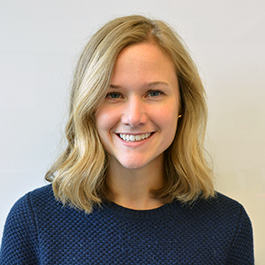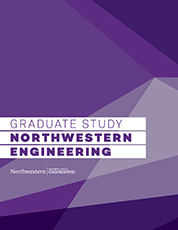Stacy KlingbeilCivic Designer, Bennett Midland

Alumni Interview
"There are too many people to name from EDI that I could call up tomorrow and get great, thoughtful advice and mentorship from. From my EDI colleagues that have turned into great friends and the inspiring EDI graduates from other cohorts to program leaders and exceptional instructors, it's a privilege to feel this much support is always there."
When you started EDI, did you know what industry you wanted to work in or were you still exploring?
I definitely knew I wanted to work in the social sector and came to EDI from the international development/education space. At the time, I had just learned about HCD and it felt like a powerful approach that really made sense in a social impact context: identifying and putting peoples real needs at the center of new things. I definitely did not know what that could look like and it still feels like design and social impact is something that's evolving. Early on, I felt that EDI would not only give me the practice in HCD but its culture and values would help cultivate an entrepreneurial spirit that'd help me adapt and change alongside the industry.
Tell us about an EDI course that made an impact on you.
Design Research gives you such a great foundation that you can apply in all of your work going forward - how to ask good questions, understand others, face your assumptions and let yourself be surprised, analyze a large amount of qualitative information to inspire action, etc. Service Design Studio also sticks out to me because, before it, I didn't know service design was a thing! I can only imagine how different my life would be if I didn't get exposed to applying HCD principles to experiences. And Innovate for Impact not only because it focused on the deeper complexities of applying design to social challenges but because you get to collaborate with other, very different perspectives on design. This is something I face every single day in my current role. But I could really go on and on because there's not one course where I can't think of a stand out lesson learned.
Is there anyone you worked with during EDI that you consider a mentor?
There are too many people to name from EDI that I could call up tomorrow and get great, thoughtful advice and mentorship from. From my EDI colleagues that have turned great friends and the inspiring EDI graduates from other cohorts to program leaders and exceptional instructors, it's a privilege to feel this much support is always there.
How did you decide on your EDI thesis project?
Eek. I do not remember and believe I was spinning my wheels for a while. This is something when I look back I would have liked to have done differently. Now, I actually keep a list of things that have clear problems and need to be redesigned, like the breast pump, voting ballots, and the process of finding a primary care doctor to name a few, just in case in a dream world I get to have free reign on a project.
What advice do you have for an EDI student interested in working in your industry?
In every project, remember to understand partners, decision-makers, and other stakeholders as closely as you understand end users. These people help make your great ideas real and that's the only way you'll truly have any "impact." Then when things become real (and especially during prototyping), diligently measure their effectiveness. When dealing with social challenges, we need things that work. When it comes to working in this industry more broadly, think creatively and be open to how you can practice. Since EDI, I have not had the path I imagined I would have and, somewhere along the way, I realized that's something to be proud of. Even though it might not always be working out, stick with it. I talk to too many people interested in design and social impact that end of taking positions in more commercial organizations. I know in our inherently social world that's meaningful work as well and there are very real realities like putting food on the table but if you keep searching, asking questions, and offering some ideas, you're bound to find people and places doing really good work that could pay you to contribute.

